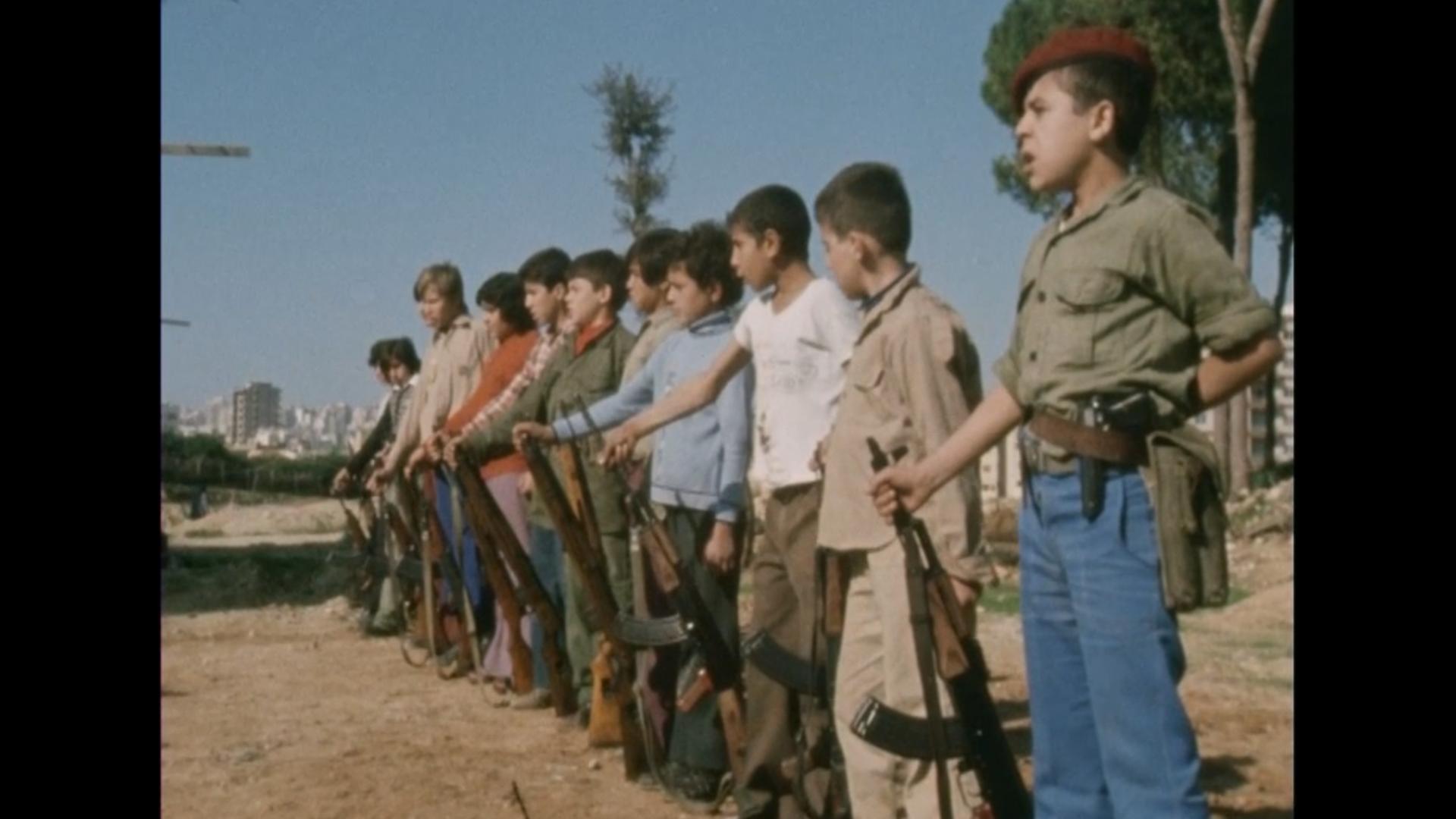
Encountering the real effects of destruction, the films in this Beirut-focused series complicate the relationship between fact and fiction, using poetry and other forms of intermediality to witness what emerges from ruins. Beirut, a city that has often been the site of sectarian, colonialist and imperialist violence, is a context which produces films that critically engage with images related to moments during, between, and after war and upheaval. At the center of this series is a retrospective of several early films by Jocelyne Saab, who uses documentary form to demonstrate the effects of violence in Lebanon and to challenge dominant western media perceptions and practices of filming and exhibiting war in Beirut. This series coincides with and honors the one year anniversary of the devastating Beirut Port explosion through the celebration of Lebanese filmmaking. The June program encompasses Palestine and the refugee camps and slums on the outskirts of Beirut.
Two short documentaries by Jocelyne Saab shot near the beginning of the Lebanese Civil War and a feature-length documentary by Mai Masri and Jean Chamoun shot toward the end of the war in 1988 will screen this June. Central to these films are the youth of Beirut as they live with and resist imperialist and sectarian forms of violence.
Days after the 1976 Karantina massacre, perpetrated by right-wing Christian militias in a Palestinian slum near the port of Beirut, Jocelyne Saab meets a group of children who escaped the carnage. Saab gives the children––many of whom had lost family members in the massacre––crayons and encourages them to draw while she films. While filming, Saab makes a bitter discovery: mirroring what they were witnessing and experiencing in wartime, the only play the children engage in are war games. War games quickly bleed back into life.
- Year1976
- Runtime10 minutes
- LanguageFrench, Arabic
- CountryLebanon
- DirectorJocelyne Saab
- CinematographerHassan Naamani
- EditorPhilippe Gosselet
Encountering the real effects of destruction, the films in this Beirut-focused series complicate the relationship between fact and fiction, using poetry and other forms of intermediality to witness what emerges from ruins. Beirut, a city that has often been the site of sectarian, colonialist and imperialist violence, is a context which produces films that critically engage with images related to moments during, between, and after war and upheaval. At the center of this series is a retrospective of several early films by Jocelyne Saab, who uses documentary form to demonstrate the effects of violence in Lebanon and to challenge dominant western media perceptions and practices of filming and exhibiting war in Beirut. This series coincides with and honors the one year anniversary of the devastating Beirut Port explosion through the celebration of Lebanese filmmaking. The June program encompasses Palestine and the refugee camps and slums on the outskirts of Beirut.
Two short documentaries by Jocelyne Saab shot near the beginning of the Lebanese Civil War and a feature-length documentary by Mai Masri and Jean Chamoun shot toward the end of the war in 1988 will screen this June. Central to these films are the youth of Beirut as they live with and resist imperialist and sectarian forms of violence.
Days after the 1976 Karantina massacre, perpetrated by right-wing Christian militias in a Palestinian slum near the port of Beirut, Jocelyne Saab meets a group of children who escaped the carnage. Saab gives the children––many of whom had lost family members in the massacre––crayons and encourages them to draw while she films. While filming, Saab makes a bitter discovery: mirroring what they were witnessing and experiencing in wartime, the only play the children engage in are war games. War games quickly bleed back into life.
- Year1976
- Runtime10 minutes
- LanguageFrench, Arabic
- CountryLebanon
- DirectorJocelyne Saab
- CinematographerHassan Naamani
- EditorPhilippe Gosselet